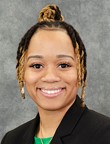Do you know how lucky we are to have success coaches here at Catawba College? On my first day at Catawba, I was greeted with a friendly smile and a genuine concern for how I was doing by my success coach, Daniel Allen. Ever since that first experience, knowing he truly cared meant a lot to me as my freshmen year was a great adjustment period. As my freshman year unfolded, I met with him on several occasions. I went by his office whenever I felt like I needed to; his door was always open. Knowing what a great asset he was for me, I thought I should share this insight. I interviewed the coaches to ask them what their own personal thoughts on the program were. There are three coaches, Daniel Allen, Dinah Neal, and Austin Mangus.
My first interview was with my own coach Daniel, and he told me many interesting facts about what being a success coach is and what it means to him specifically. The program was created here at Catawba by Daryl Bruner and began in May of 2019. As Daniel sees it, the main goal of this program is to connect with students and to help them deal with any issues they may face here at Catawba. Daniel, during his five years of success coaching, three of which have been here, has come up with his own definition for what a success coach is: “Someone who helps students transition to college and works as an intervention point and listening ear” he said. As for how success coaches accomplish this goal, Daniel pointed out that it is the main goal of a success coach to help students navigate their challenges, rather than to simply give the student one definitive answer to the issue at hand. In his words the process is equivalent to: “helping students to help themselves with a guided conversation to come up with a plan”, the student growth portion being at the center of his mind as the key part of what a success coach should be. Daniel also explained how the program works in terms of student assignment. The success coaches are given assignments according to FYS class, each of them having six different classes total. Given the diversity of their student populations, each has different views on what a success coach means. Dinah had a different perspective than Daniel in some areas.
Dinah also views the main goal of success coaching to be student support. She feels her job is to: “[Work] with students to achieve their personal goals (…) motivating students to become the best version of themselves.” She has a very specific goal in mind as a success coach for the current members of Catawba: “My main goal as a student success coach is to assist with academic and non-academic needs, while also equipping students with lifelong skills such as time management, organization, and goal setting.” She told me that she wants to be the type of person she wishes that she had access to during her time in college.
The final coach, Austin, had a similar reason for pursuing this career. Austin said that his main goal was: “to make other people’s day” if he could. He said that during most of his school career he did not have a success coach, saying instead that our own Mr. Bruner and a professor named Barb Abbot helped to guide him. He said that with their guidance, he became aware of how good helping students made everyone involved feel. Spreading joy in terms of both academic and non-academic pursuits is his mission as a success coach here on campus.
So, what does all of this mean for students? Success coaches can be a big help in a variety of ways. Whether it be through in-person guidance or career assessment tools. They are here to help in whatever ways they can. If you want to learn more about the success coaches here on campus, please visit: https://catawba.edu/academics/success/coaching/.


